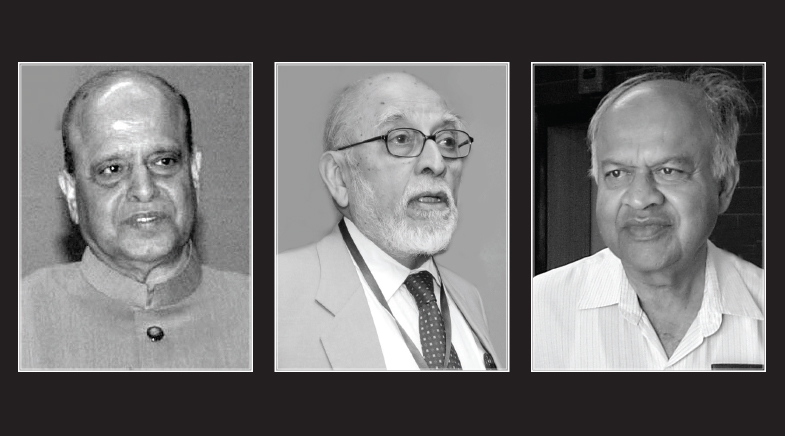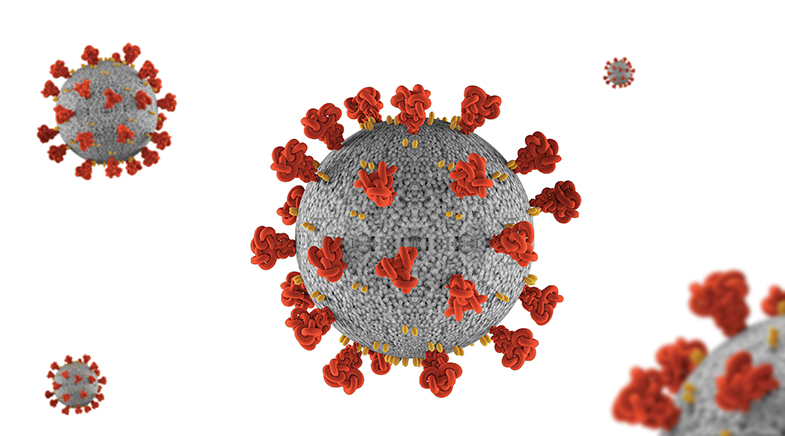'AI lacks a conceptual grasp'
-
- from Shaastra :: vol 04 issue 04 :: May 2025

Mathematician Shing-Tung Yau on the state of maths and physics research.
Chinese-American mathematician Shing-Tung Yau won the Fields Medal in 1982, for fundamental contributions to geometry and geometric analysis. After decades of work at Harvard University, Yau moved in 2022 to Tsinghua University in Beijing, as the head of the Yau Mathematical Sciences Center, which he set up. Yau is regarded as one of the two foremost modern mathematicians of Chinese origin: the other is Shiing-Shen Chern, Yau's thesis advisor and one of the founders of differential geometry. With five decades of contributions to mathematics, Yau has considerable influence on the course of contemporary mathematics and physics in China. Experts from an interview:
How do you see the current state of science and research in the world?
Science is doing fine in general, but we're getting into a lot of interaction between politics, investment, (and) business with science. That seems to be confusing many young people. In the old days, we were driven by curiosity, to understand the laws of nature and mathematics. But now we're talking about political correctness. For example, the U.S. government is punishing Harvard University for doing something unrelated to science. I feel it's getting worse because the universities depend on government funding. Government control over universities is bad.
Overall, many more people are getting into science and the results are getting very rich. But no major breakthroughs, which sometimes come from technology nowadays – like AI.
How is AI shaping your field of research now?
It helps find results we may not know, and even helps do some research. But I don't think AI can help make any conceptual breakthrough in mathematics or physics. The success of AI needs to be understood before we can do anything more: it's like a black box that somehow works. The storage and memory capacity of machines is, of course, spectacular. The great mathematician Euler wrote about 800 papers – in Latin; we probably digested only a few of them. Hopefully, AI can digest them better than us. I think AI can help, but not in a conceptual way.
Is it a matter of time before AI develops conceptual understanding?
I don't believe so. We know that electricity and magnetism can interact strongly, but that's based on observation and experiment. Just based on AI, we would not know these. So, experiment is important. The famous Michelson-Morley experiment, to prove whether ether exists or not, proved that light speed is constant. It was a spectacular experiment, which AI would never have even dreamt about.
"AI would have a difficult time dealing with the concept (of beauty in maths)."
Even in mathematics, AI would probably never be able to find the concept of Riemannian Geometry. Before Riemann, it was all different: Riemann would piece them together, motivated partially by physics and partly by the pursuit of beauty. The question of beauty is very important in mathematics. Everybody has a different way of looking at it. I'm a geometer: I like to look at mathematics from a geometry point of view. My friends who are interested in number theory say they only care about numbers. AI would probably have a difficult time dealing with this subjective concept.
How will fundamental areas of physics and mathematics shape up in the next 10 years or so?
The real fundamental question is quantum geometry: how we can develop a geometry that can handle both quantum physics and general physics. This was Einstein's dream, but it's getting more mature. Physics training can help, but not completely. There are many fundamental questions that we need to solve. All these are related to physics in one way or the other, and I think it's a great unification being developed by mathematicians and physicists. I believe that gradually, you will get into understanding biology. The fundamental development of biology will start soon, because we have a huge amount of data, and we can understand data better and try to get a standard model for biology. Biological science is basically still experimental science; we hope mathematicians will get into it, and physicists and engineers, too.
Will the current atmosphere of distress around the world affect science as an international endeavour?
It's very depressing to see that. We need to live in a free way to think about science. In the last 100 years, we saw great scientific developments based on collaboration among many countries and races. It's just too bad that people look at science based on country and race.
If U.S. funding of scientific research goes down, will China step up?
It has been stepping up already. China still lags behind American funding, but it's getting better. The quality is improving. The Chinese government is willing to support it. In the old days, it only supported applied science, but now it supports basic science too.
See also:
Mind the gap in science funding
Science revision
'Future of science in India is bright'
'The whole world should team up'
Have a
story idea?
Tell us.
Do you have a recent research paper or an idea for a science/technology-themed article that you'd like to tell us about?
GET IN TOUCH














